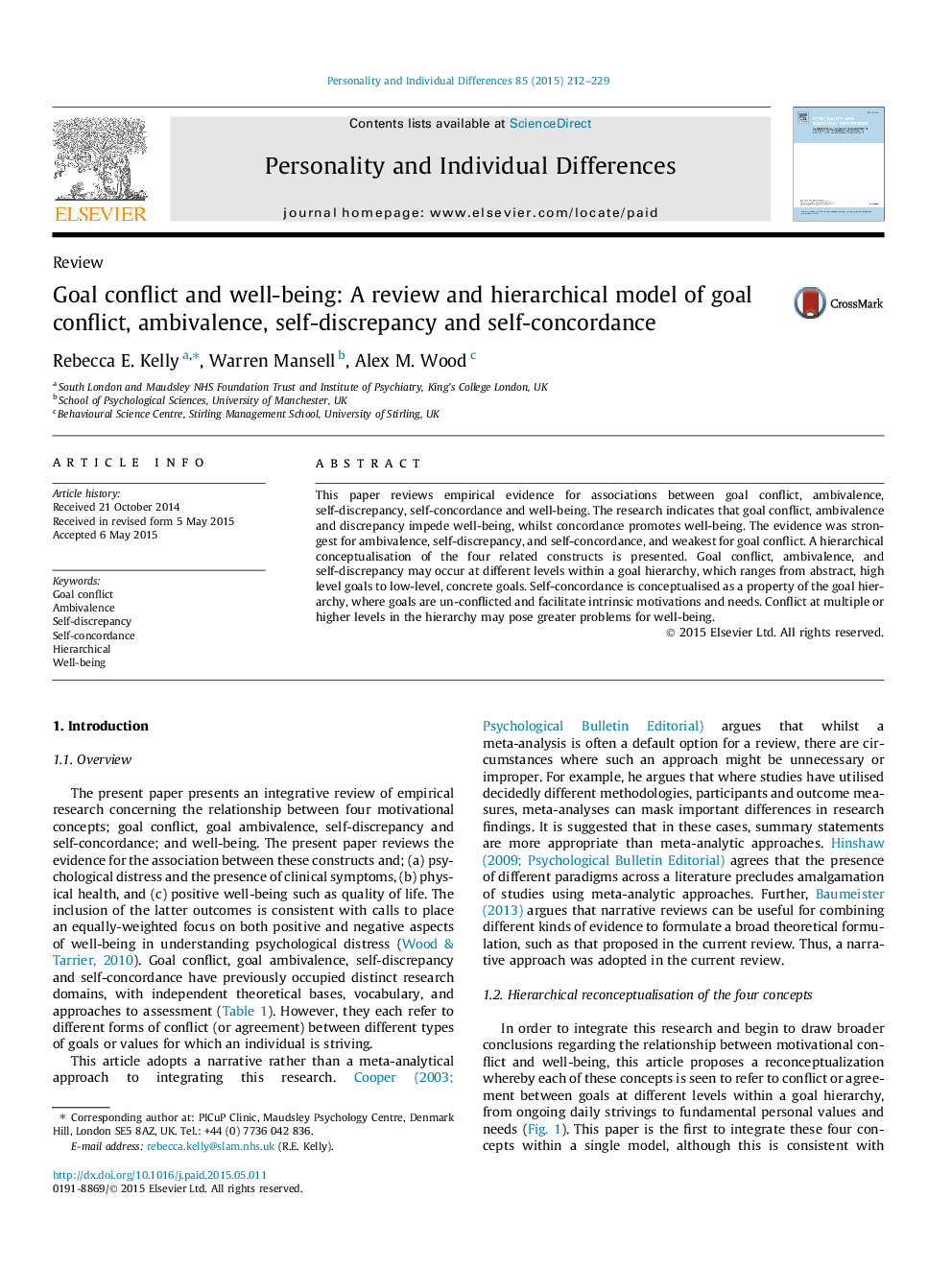| Article ID | Journal | Published Year | Pages | File Type |
|---|---|---|---|---|
| 7251141 | Personality and Individual Differences | 2015 | 18 Pages |
Abstract
This paper reviews empirical evidence for associations between goal conflict, ambivalence, self-discrepancy, self-concordance and well-being. The research indicates that goal conflict, ambivalence and discrepancy impede well-being, whilst concordance promotes well-being. The evidence was strongest for ambivalence, self-discrepancy, and self-concordance, and weakest for goal conflict. A hierarchical conceptualisation of the four related constructs is presented. Goal conflict, ambivalence, and self-discrepancy may occur at different levels within a goal hierarchy, which ranges from abstract, high level goals to low-level, concrete goals. Self-concordance is conceptualised as a property of the goal hierarchy, where goals are un-conflicted and facilitate intrinsic motivations and needs. Conflict at multiple or higher levels in the hierarchy may pose greater problems for well-being.
Related Topics
Life Sciences
Neuroscience
Behavioral Neuroscience
Authors
Rebecca E. Kelly, Warren Mansell, Alex M. Wood,
